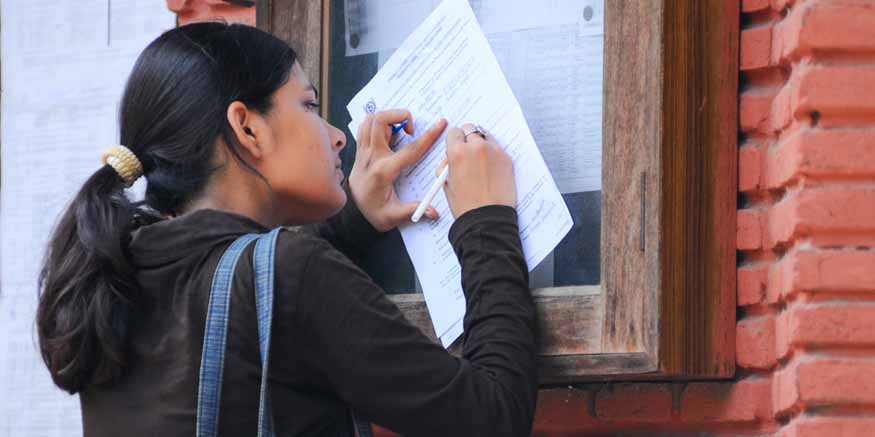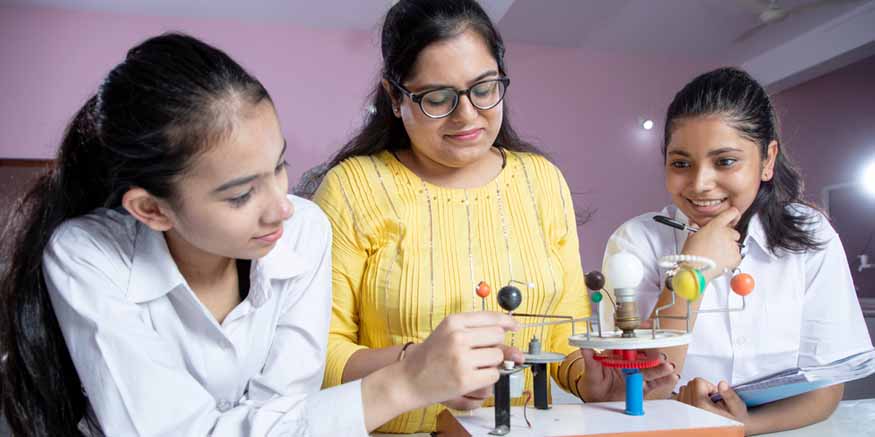From a child’s early growth to schooling, the role of parents in students’ life is crucial for shaping their educational journey. Parent’s involvement extends beyond merely sending their children to school, it means creating a supportive learning environment, encouraging an interest in learning, and actively participating in their child’s academic growth.
Understanding the importance of parental involvement in education not only improves academic goals but also adds to the child’s entire growth and behaviour. In this sense, parents want to play a role as friends and supporters for their children, coordinating with teachers to achieve the greatest educational opportunities and results possible.
Learning does not start from schooling, it starts from home, where parents are educators. The parent needs to understand what their children are learning in school, and what their subject of interest is.
Things Parents should remember for selecting the best School:
- Academic Excellence:
- Learning Environment:
- Things apart from subjects:
- Resources and Facilities:
- Parents Involvement:
- Student Support Services:
- Values and Philosophy:
- Location and Transportation:
- Reputation and Reviews:
- Affordability:
Looking for a school that encourages academic severity and has a good record of academic achievement. Also consider the school’s curriculum, teaching methods, and the qualifications of the teachers.
Assess the school’s atmosphere and culture. Look for a healthy and supportive learning atmosphere in which children feel protected, respected, and inspired to study. Consider the following major factors: size of the class, student-teacher proportions, and disciplinary guidelines.
Consider the availability of extracurricular activities such as sports, arts, clubs, and community service programs. These activities can enhance a child’s holistic development and provide opportunities for exploration and growth beyond the classroom.
Evaluate the school’s facilities, including libraries, laboratories, technology resources, and sports facilities. Sufficient resources can enhance the learning experience and provide students with hands-on opportunities.
Look for a school that encourages parents’ opinions and values open communication between parents and teachers. The school should be aware of the role of parents in students life, because strong parent-school partnerships can have a good impact on a child’s educational journey.
Consider the availability of help services such as counselling, special education, and coaching activities. These initiatives can meet a variety of learning requirements and ensure all students receive the assistance they require to achieve.
Assess whether the school’s values and educational philosophy align with your own beliefs and expectations. Note the factors such as the emphasis on character development, inclusivity, and respect for diversity.
Evaluate the school’s proximity to your home and the availability of transportation options. Consider the simplicity and friendliness of transporting your child to and from school.
Know about the school’s reputation and seek feedback from other parents or community members. Reviews and feedback can give a glimpse at current or past students’ and their families’ experiences.
Consider the tuition fees and any additional costs associated with attending the school. Assess whether the cost aligns with your budget and whether financial aid or scholarship opportunities are available.
Also Read: How to Improve Your Child’s Body Language & Why It Matters
Role of Parents in early childhood education:
- Establish a Routine:
- Provide a Supportive Environment:
- Monitor Academic Progress:
- Teach Behaviour and Discipline:
- Communicate with Teachers:
- Build a Partnership:
- Attend School Events:
- Advocate for Your Child:
- Be a Role Model:
- Celebrate Achievements:
Set a structured routine at home that includes designated study time, homework completion, and revision. This helps instil discipline and a sense of responsibility in students.
Create a calm and quiet study space at home where students can concentrate on their work without distractions. Offer assistance and encouragement when needed, showing a genuine interest in their academic pursuits.
Regularly check and review your child’s homework, assignments, and test results. Stay updated on their progress and discuss any concerns or areas that require improvement. Celebrate their achievements to boost their confidence.
Reinforce positive behaviour and teach important values such as respect, responsibility, and perseverance. Set clear expectations and boundaries regarding academic commitments, homework completion, and classroom conduct.
Maintain open lines of communication with your child’s teachers. Attend parent-teacher conferences, communicate via email or phone, and actively participate in school activities. Share relevant information about your child’s strengths, weaknesses, or personal circumstances that may impact their learning.
View teachers as partners in your child’s education. Show appreciation for their efforts and collaborate on strategies to support your child’s academic progress. Seek their guidance on effective learning techniques or additional resources that can benefit your child.
Participate in school events such as parent workshops, curriculum nights, or volunteer opportunities. This involvement demonstrates your commitment to your child’s education and strengthens your bond with the school community.
If concerns or issues arise, respectfully communicate with the teacher or school administration. Work together to find solutions that benefit your child’s educational experience.
Demonstrate a love for learning and intellectual curiosity in your own life. Engage in conversations about books, current events, or interesting topics. Encourage your child to explore their interests outside of school and support their hobbies or extracurricular pursuits.
Acknowledge your child’s accomplishments, both big and small. Celebrate their progress, effort, and resilience. This positive reinforcement reinforces the value of education and motivates them to continue striving for success.
Activities for Parent-Child Enrichment:
Apart from school, parents can engage in various activities with their children to enhance their learning and overall development. Here are some key points for better understanding of the role of parents in education.
- Encourage reading by providing books, visiting libraries, or reading together.
- Foster creativity through art projects, crafts, and imaginative play.
- Explore nature through outdoor activities like hiking, gardening, or observing wildlife.
- Promote physical fitness by participating in sports, biking, or going for family walks.
- Stimulate critical thinking with puzzles, board games, and brain-teasers.
- Introduce cultural experiences by visiting museums, attending concerts, or exploring different cuisines.
- Teach life skills through cooking, budgeting, or engaging in household chores together.
- Support community involvement through volunteering or participating in local events.
- Foster a love for learning by discussing current events, engaging in educational discussions, and encouraging curiosity.
- Provide opportunities for social interaction and friendship-building, such as playdates or joining community clubs or organisations.
Also Read: 5 Ways to Improve Young Children’s Decision-Making
Conclusion:
At EuroSchool, we are aware of the role of parents in students’ lives and believe that Parents become the driving force behind their children’s academic achievement and long-term well-being by establishing a loving and supportive environment at home, supporting holistic development, and forming strong collaborations with schools and instructors. Their unbreakable dedication and concerted efforts pave the way for a prosperous and fulfilling future for their cherished ones.









